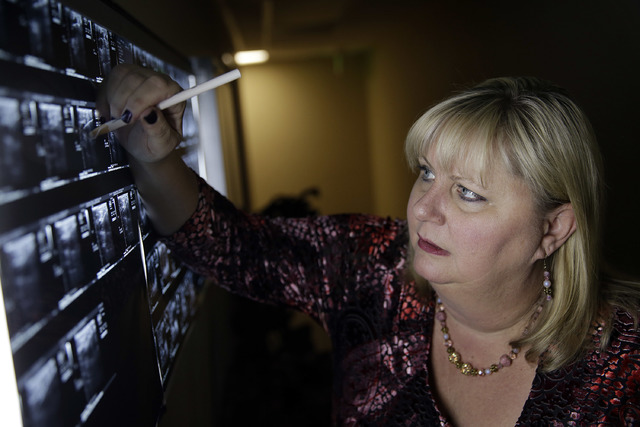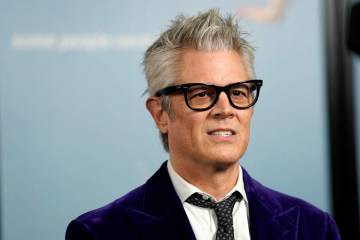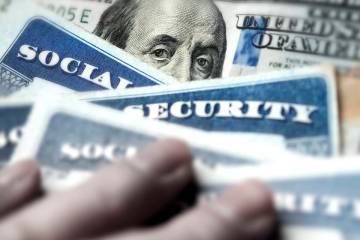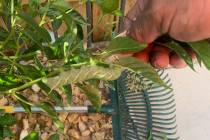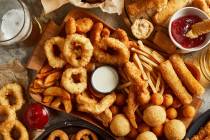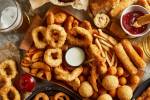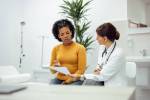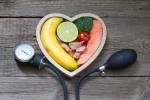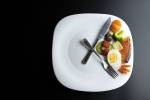Nutritious diet can help keep cancer at bay
Maintaining a healthy diet and lifestyle is always a good idea, and experts maintain doing so might help reduce the risk of developing breast cancer.
But even after receiving a diagnosis, local health care professionals say patients and survivors of the disease should take steps to keep their nutrition in check throughout their treatment and recovery periods — and beyond.
“We know that eating healthy is something that may be able to decrease the recurrence risk” of breast and other types of cancer, said Amy Patton, a registered dietitian with Option Care in Las Vegas.
Patton, who is the only certified specialist in oncology nutrition in Nevada, is frequently contracted to consult patients of Comprehensive Cancer Centers of Nevada about their diets following a diagnosis.
With breast cancer, she said, “there are a lot of things that are beyond your control. You can’t control your age, you can’t control your family history, you can’t control your genetics … but you can control what you put in your mouth.”
When consulting patients, Patton said she directs them to “reliable” online resources for breast cancer-related nutrition information, including websites for the American Cancer Society, the National Cancer Institute and the Susan G. Komen Foundation.
“I don’t want them going and finding information that’s completely inaccurate; that may frighten them or cause them to do harmful things. I also don’t want them to discount the link between nutrition and cancer,” she said.
Patton said dozens of studies have shown that postmenopausal women who are overweight or obese at the time they receive a breast cancer diagnosis, as well as those who gain weight afterward, are more likely to experience a recurrence of the disease later.
“If you’re obese, you have more fat tissue, you may have higher estrogen levels” that might promote the development, growth and spread of breast cancer, providing the link between body weight and the risk for cancer recurrence, Patton said.
“Even if you’ve been diagnosed, it’s not too late to start eating healthy” by adopting a diet comprised largely of fruits, vegetables and lean proteins, she said. “It’s just a matter of changing up the ratios so the bulk of your food is plant-based.”
Much has been made about the role soy should — or should not — play in the diets of breast cancer patients and survivors given its high content of isoflavones, compounds that mimic estrogen.
“The research is ever-changing, and there’s no one-size-fits-all answer,” Patton said, although consuming small or moderate amounts of real soy foods is probably safe for most patients and survivors with the exception of those with estrogen-sensitive tumors.
But she cautions all breast cancer patients to steer clear of the supposed cancer-curing diet plans that flood the internet, the bulk of which are not based on scientific research.
“I think when you’re looking for anything that may be able to help yourself or your family member, sometimes people are willing to … overlook some of the science — or lack thereof — behind the recommendations just for a quick fix,” Patton said.
“Is there a link with nutrition and longevity when it comes to cancer? More and more, research is showing that there is, but it’s not that direct link of ‘eat kale and it will cure your cancer.’ The body is more complex than that.”
In her two-plus decades as a physician, Margret Terhar, a breast surgeon with Comprehensive Cancer Centers and director of the Breast Center at Sunrise Hospital, said she has never seen a patient cured of disease through a program “that doesn’t include standard medical treatment. There’s never been a success story, in my experience.”
Sticking with a healthy diet can be particularly challenging for patients undergoing chemotherapy therapy treatments, as the powerful medications can cause nausea and wreak havoc on the digestive system, among other side effects.
“During chemotherapy, you want to make sure that (patients) are getting good nutrition … so that they can build tissue that may be affected by the treatment” and strengthen the immune system and recover from surgeries including mastectomies and lumpectomies, Patton said.
But “a lot of times we’re just managing the (medication’s) side effects, and sometimes you have to put … adequate calorie, protein and fluid intake ahead of what is considered healthy eating,” in which case small snacks or frequent meals of whatever a person can stomach may be best.
Terhar said she knows from listening to patients that it can be “a little tricky” to eat nutritiously between chemotherapy treatments. “You may not feel like eating a big apple because your gums are sore or your mouth has ulcers in it, so just try to get whatever you can in to keep your strength up and stay hydrated.”
Patton agreed.
“If there’s days and weeks when you’re not able to eat very much, or vegetables or lean proteins don’t sound appealing and you have to go for something that’s not as traditionally healthy, that’s still sometimes better than not eating anything,” she said.
Carolyne Duhs knows firsthand the challenges of attempting to eat healthily while undergoing chemotherapy.
The Las Vegas woman was first diagnosed with breast cancer in 1992 at age 36. She has twice experienced recurrences of the disease and is battling Stage 4 cancer in her lungs.
When she began chemotherapy treatments more than a decade ago, Duhs said most of the food she ate “would go in and come out. It was like that for a little while.”
These days, 61-year-old Duhs has difficulty swallowing and gaining weight. She recently consulted a nutritionist who suggested she add sweeteners and fats to her favorite foods, including oatmeal and mashed potatoes, to help boost her caloric intake.
After dealing with breast cancer, its treatments and side effects for so many years, Duhs said she has almost gotten used to the nutritional ups and downs that accompany it.
“One day, you’re doing good; you eat this or that. The next day, you might eat the same thing, and every bit of it comes up. You’re deathly sick,” she said.
Thankfully, because of improvements in anti-nausea and other supportive medications that have been made in recent decades, some breast cancer patients are able to keep their appetites during treatment.
In such cases, “obviously we don’t want someone eating a bunch of unhealthy foods and gaining weight if their appetite is good,” Patton said, “so it’s not a get-out-of-jail free card to eat what you want.”
Once breast cancer treatments have concluded “is when you really want to focus more on healthy eating,” she said, by placing an emphasis on whole-grain foods, fruits, vegetables and plant-based proteins.
And there is probably no harm in enjoying an occasional treat, Terhar said.
“I think our mental health kind of contributes to the whole mind-body experience, so anything that makes you happy isn’t bad for you as long as you don’t (eat) too much of it.”



